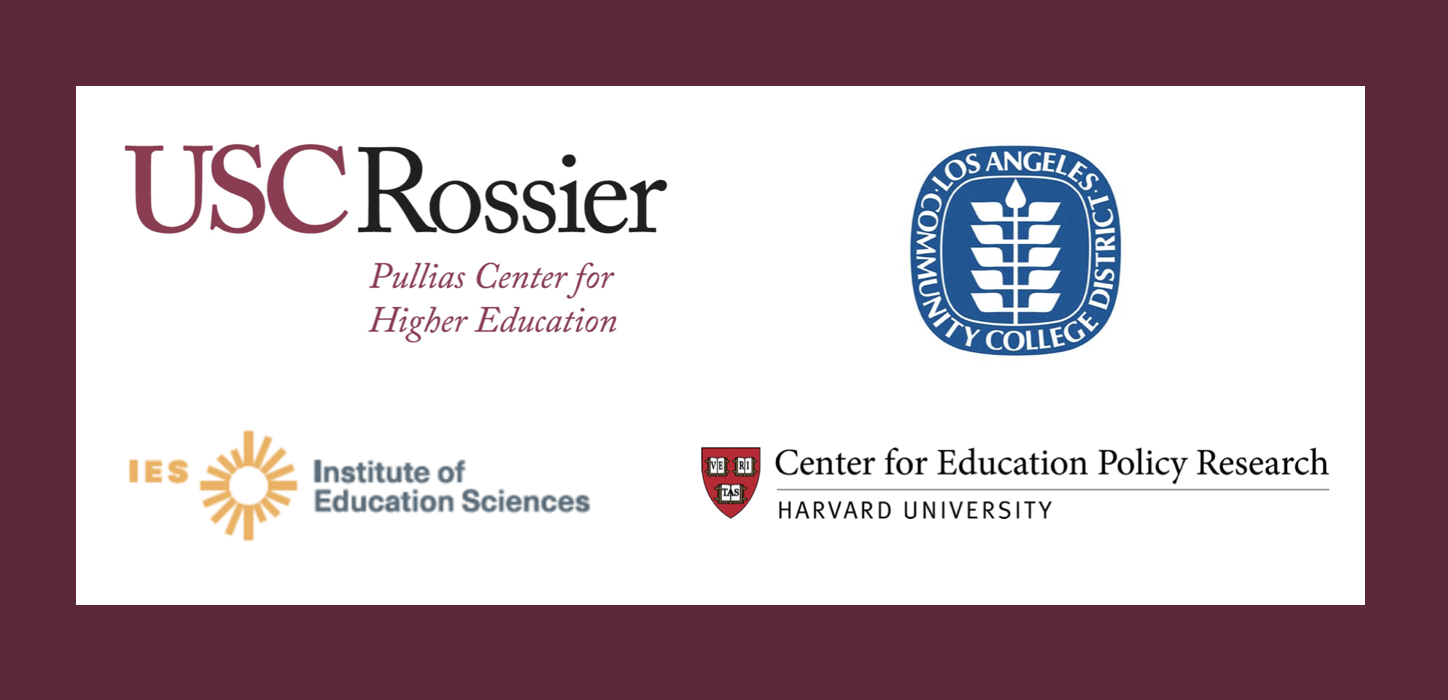The three-year study, funded by a $2.9 million grant from the Institute of Education Sciences, will examine how technology can remake the student experience.
The Covid-19 pandemic affected why students choose to enroll in the Los Angeles Community College District, how they attend classes, and what they go on to do.
Now, the Pullias Center is partnering with LACCD and researchers from the Center for Education Policy Research (CEPR) at Harvard University to evaluate how the system is using technology to respond to the pandemic’s challenges and reimagine how students access learning.
The three-year comprehensive study is being funded by a $2.9 million grant from the Institute of Education Sciences, the statistics, research, and evaluation arm of the U.S. Department of Education. The project is part of the Community College Recovery Research Network, a novel national program funded by the American Rescue Plan. The network will bring together researchers and community college systems to provide evidence-based recovery activities that address the declines in postsecondary enrollment and academic progress that occurred during the COVID-19 pandemic.
“When Covid hit, LACCD took decisive action — the system offered students food support and other emergency aid, provided them with technology support, and offered online alternatives to keep people safe,” said Tatiana Melguizo, a co-principal investigator and a professor at USC Rossier and the Pullias Center “This project is a recognition by system leaders that recovery doesn’t mean going back to 2019, but creating a better model that serves students today and tomorrow.”
With nine campuses, LACCD is the largest community college in the Los Angeles area, serving a diverse range of students who enter the system with a wide array of goals. However the system’s 2021 enrollment of nearly 92,000 students was down from more than 100,000 before the pandemic.
LACCD offered some online courses prior to the pandemic, but had to shift classes fully online for more than a year. As part of its recovery efforts, the system is using technology to engage students in different ways, including creating “hy-flex” courses that allow students to choose if they want to attend class in-person or online on a session-by-session basis. The project will examine the effect of these formats on student learning.
The study will examine students’ enrollment decisions, the effectiveness of in-person, hybrid, and online courses, and the potential costs and benefits — in both money and student experience — of scaling hybrid and online course formats.
“LACCD is thrilled to participate in this study as it explores how the pandemic necessitated the creation of equitable opportunities for our students and areas of growth for our colleges,” said Francisco Rodriguez, Chancellor of Los Angeles Community College District (LACCD). “This research will directly benefit our students as we discover how COVID-19 impacted student access and success. I hope this new study opens up opportunities to transform the lives of our students and positively impact generations of students to come.”
“We have seen large enrollment drops in community colleges across the country, and those have significant implications for individuals and our society,” said CEPR’s Christopher Avery, a co-principal investigator for the project. “Together with LACCD, we aim to identify pathways that will allow more students to enroll, persist, and graduate, and use these lessons to reverse this enrollment trend.”
Researchers will also explore how the increased number of online and hybrid courses has changed the workload for faculty and what supports these instructors need to move classes online. In addition, the project will explore how the different course formats relate to student and instructor wellbeing.
As part of the work, researchers will also examine how changes in the Los Angeles labor market relate to students’ decisions to enroll and persist at LACCD, and the jobs they wound up taking.
The research team will provide an annual report to LACCD and publicly report on its findings throughout the project.
About the Center for Education Policy Research at Harvard University
The Center for Education Policy Research at Harvard University, based at the Harvard Graduate School of Education, seeks to transform education through quality research and evidence. CEPR and its partners believe all students will learn and thrive when education leaders make decisions using facts and findings, rather than untested assumptions. Learn more at cepr.harvard.edu.
About the Los Angeles Community College District
LACCD (www.laccd.edu) is the nation’s largest community college district, educating about 250,000 students annually at its nine colleges that serve the residents of more than 36 cities and communities from 900 square miles of Los Angeles County. Since 1969, the District has been providing an important learning pathway for students seeking transfer to four-year colleges or universities while also offering two-year degrees and certificated training programs to Southern California’s diverse workforce in many specialized trades and professions.








